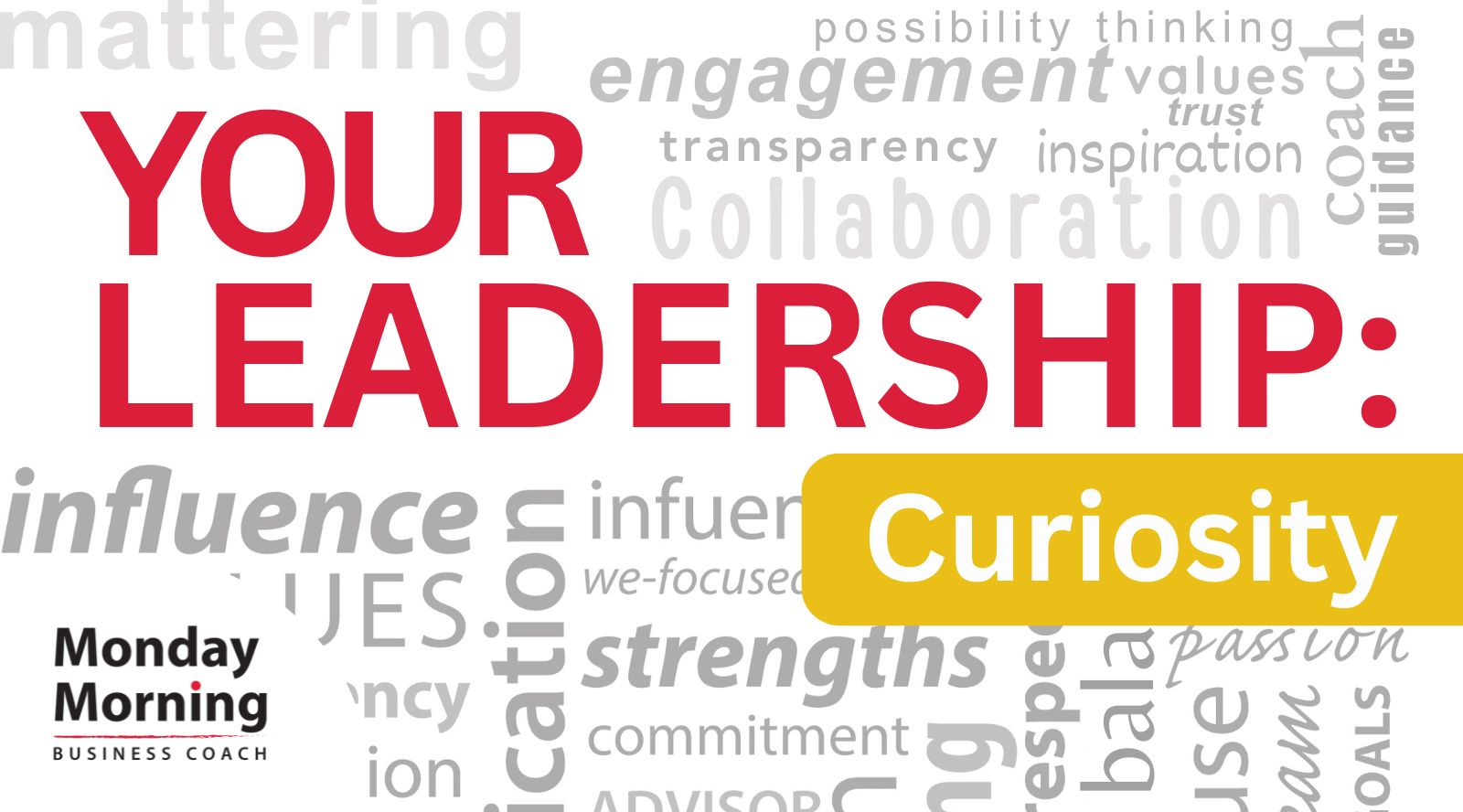We recently began a series based on a McKinsey and Company article that discusses these five leadership behavior areas:
- Your Strengths: In this post, we encouraged you to identify your top skills and strengths.
- Pausing: In this post, we reminded you of the power of using the PAUSE so that you can show up at your best.
- Building Trust: Last week, we focused on building trust with your team so that people are motivated, engaged, and feel as if they belong.
- Being Curious: Today, we’re covering the importance of remaining open and curious in your conversations with your team.
- Your Wellbeing: In our final post in this series, we’ll talk about the reasons to take care of yourself and what that might look like.
Whether you’re starting a new leadership role or have been in one for a while, your ability to be curious can increase your impact and credibility.
Over the years, we’ve often talked about the power of being curious. In fact, in each of the posts in this series, you’ll notice that curiosity plays a big role.
Today, we’re providing you with some suggestions for ways you can remain curious in multiple situations.We’ve found that some of these questions are great for various situations, so you’ll see them repeated in more than one area.
When you’re a new leader, it’s important to lean in and learn about the people you’re working with, not grill them on who they are.
- What brought you to this organization/department?
- What type of management style helps you thrive?
- How do you like to be recognized for your contributions and successes?
- What motivates you in your work? Demotivates you?
- What support do you need from me in order to be successful?
When there are new team dynamics, it’s important to continue regularly checking in with people. Whether people have left the team or recently joined, it can be unsettling for many. Consider getting curious with people about what’s happening in their world.
- How can we remain open and lean into each other during these changes?
- What are your big concerns right now?
- As our team is growing and changing, I’d love to know if anyone has questions or suggestions about their role, the team dynamics, or how we can ensure a great working environment.
- It’s more important than ever to name what support would look like for each of us, during this time. What would support from me look like? What would support from the team look like?
When you want productive input, it can sometimes be a challenge because people aren’t quite sure how to answer. Try our Benefits, Concerns, and Suggestions framework as a way to teach people how to give input in ways that you can use.
- What are the Benefits of this idea (proposal, plan, strategy, initiative, approach)?
- What Concerns do you have about this idea (proposal, plan, strategy, initiative, approach)?
- What Suggestions do you have to make this a great idea (proposal, plan, strategy, initiative, approach)?
When you’re having regular 1:1s, consider asking some open-ended questions and see if you gain greater engagement and ownership from your employees. Our clients have found great success when switching up their 1:1s to include just these simple questions.
- What were your successes this past week?
- What were your challenges? What did you learn from them?
- What are your suggestions for what you’ll focus on in the upcoming week?
- What support do you need from me in order to be successful?
When the team is burned out, it’s more important than ever to lean in and create a foundation of support. In the work that we do, we’ve come to see the power that great managers and leaders have in transforming their workplaces with curiosity.
- What’s happening in your world as you deal with life’s current challenges?
- What type of work creates satisfaction for you as an individual and as a team? What’s getting in your way?
- If you could change one thing about the work, your roles, our culture, what would that be?
- What can I/the team do to support you in being successful in your role?
Remember, the goal of curiosity is to find out what you don’t know. Asking questions is the best way to learn what’s working, what’s not working, and what could be better.
Approach your questions
with warmth and kindness
and you’ll have some rich conversations.
Stay tuned for next week when we’ll cover the importance of your health and wellbeing.
If you’d like support
leading at your best
contact us today.


